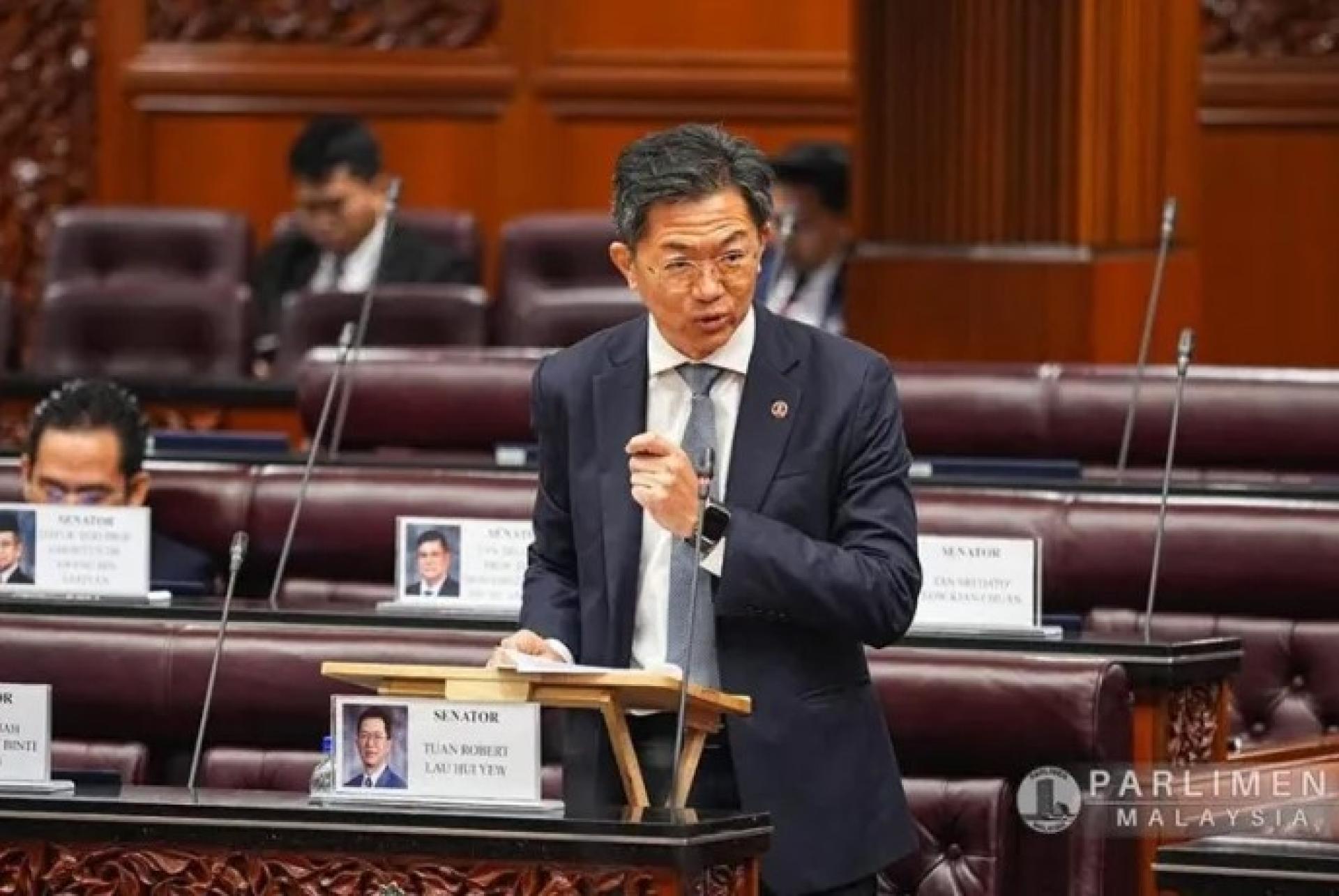KUCHING, Sept 4: Rare earth elements (REE) could be another “goose that can lay the golden eggs” for Malaysia, with an estimated worth of RM1 trillion.
Debating the 13th Malaysia Plan in Parliament, Senator Robert Lau cautioned that the nation must not repeat past mistakes in managing oil and gas resources, particularly in Sarawak and Sabah, where state resources were extracted with minimal compensation, through opaque processes and underhanded tactics.
“I hope the country will not repeat the mistakes made in the oil and gas industry where states’ natural resources were taken with minimal compensation and managed in a manner that was far from transparent,” he said.
In response, Deputy Natural Resources and Environmental Sustainability Minister Dato Seri Huang Tiong Sii, in a written reply, said the federal government has no intention of establishing a single national entity to regulate REE development.
He explained that the Ministry of Natural Resources and Environmental Sustainability (NRES) had held several rounds of discussions and engagements, during which several states voiced strong opposition to the idea, seeing it as an attempt to nationalise natural resources.
“As is well known, the development of petroleum resources beyond state waters is different from the management of land affairs, which is under state jurisdiction,” Huang said, citing the Federal Constitution, Ninth Schedule, State List, which affirms that state authority includes mining permits, licences, leases and certificates.
He further said the government has no plan to enact a specific law to regulate REE management, stressing that NRES respects state governments’ jurisdiction over land and minerals as enshrined in the Federal Constitution.
Currently, the mineral industry is regulated under the Mineral Development Act 1994 (Act 525), which covers all minerals, including REE. At the state level, mineral tenements, royalties and financial obligations are governed by State Mineral Enactments, the Sarawak Mineral Ordinance and the Sabah Mining Ordinance.
The deputy minister added that the National Mineral Council (MMN) already serves as the primary platform for coordination between the federal and state governments on mineral policies, including any future mechanism for REE revenue sharing.
“Any such initiative requires in-depth study and thorough engagement with all state governments to ensure that their interests and rights are always safeguarded,” he said.
“I hope the country will not repeat the mistakes made in the oil and gas industry where states’ natural resources were taken with minimal compensation and managed in a manner that was far from transparent,” he said.
In response, Deputy Natural Resources and Environmental Sustainability Minister Dato Seri Huang Tiong Sii, in a written reply, said the federal government has no intention of establishing a single national entity to regulate REE development.
He explained that the Ministry of Natural Resources and Environmental Sustainability (NRES) had held several rounds of discussions and engagements, during which several states voiced strong opposition to the idea, seeing it as an attempt to nationalise natural resources.
“As is well known, the development of petroleum resources beyond state waters is different from the management of land affairs, which is under state jurisdiction,” Huang said, citing the Federal Constitution, Ninth Schedule, State List, which affirms that state authority includes mining permits, licences, leases and certificates.
He further said the government has no plan to enact a specific law to regulate REE management, stressing that NRES respects state governments’ jurisdiction over land and minerals as enshrined in the Federal Constitution.
Currently, the mineral industry is regulated under the Mineral Development Act 1994 (Act 525), which covers all minerals, including REE. At the state level, mineral tenements, royalties and financial obligations are governed by State Mineral Enactments, the Sarawak Mineral Ordinance and the Sabah Mining Ordinance.
The deputy minister added that the National Mineral Council (MMN) already serves as the primary platform for coordination between the federal and state governments on mineral policies, including any future mechanism for REE revenue sharing.
“Any such initiative requires in-depth study and thorough engagement with all state governments to ensure that their interests and rights are always safeguarded,” he said.
